Five-hundred Tanzanian shillings, the equivalent of nearly fifty cents in the U.S., can buy a large bottle of water, a pot of tea, two veggie samosas, or a kilo of elephant meat. If you live in Tungamalenga, the village just outside of the entrance gate to the park, you can get elephant meat up to twice a year. One woman told me that besides getting a free chance to visit the park, the only direct benefit living near the park was getting bush meat, especially elephant.
This information was coming from the same woman who told me her crops were destroyed last year by elephants, so her love for elephant meat was not shocking to hear. What was shocking to hear is that this same woman told me her favorite animal was the elephant and her favorite picture from the park was of elephants. I asked, “Your favorite animal is the elephant even after they destroyed your crops?”, she laughed and said, “Yes.”
Conserving elephants is a complicated matter. They are humongous animals that can destroy crops, homes, and can injure or kill humans who get in their way. You can imagine how terrifying these animals are to people who have been in conflict with them for hundreds of years. The conflict has only increased with the growing human population and the institution of national parks. We are attempting to encourage conservation of elephants and wildlife to the same people whose parents and grandparents were removed from their homes inside of the park for the sake of the Mizungu’s (white persons) interest in protecting wildlife. It is a difficult task, and one that cannot be achieved immediately.
Coming from someone who is very critical of national parks and wildlife tourism in East Africa, working for this project has made me very positive about the future of conservation. Even after hearing that the only direct benefit of living near the park is bush meat, and that elephants continue to destroy their crops, I feel only positive energy in regards to conserving wildlife. Everyone wants a second chance of going to the park, of seeing the wildlife, of taking pictures and knowing that without the protection of wildlife, they would not have this opportunity. The fact that someone can tell you their crops have been destroyed by elephants and then laugh and tell you their favorite animal is still the elephant is reason enough to know that our project is making a difference.
-Kristi


